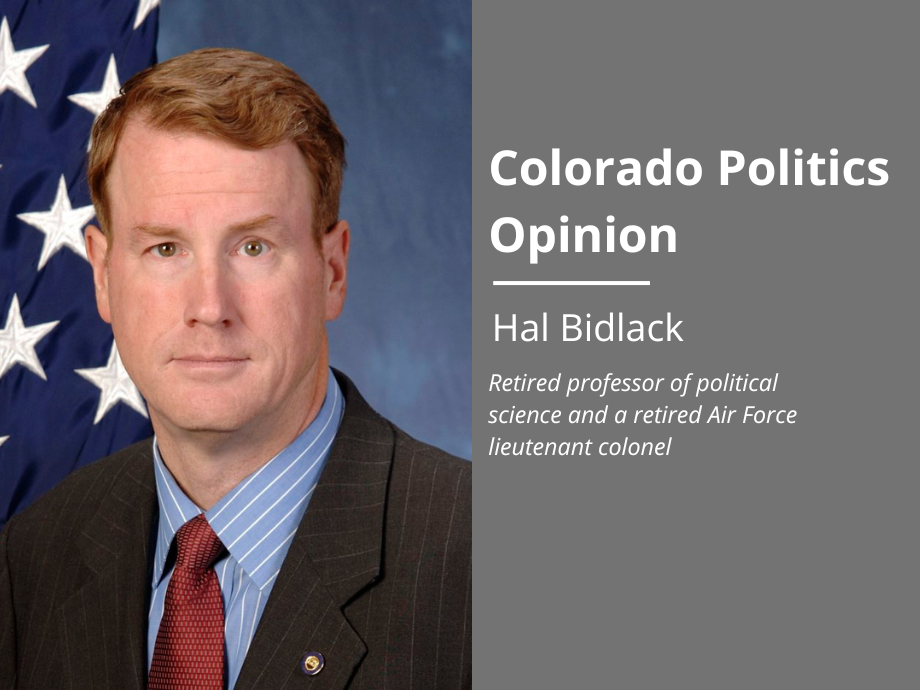Colorado judicial review system does a pretty good job | BIDLACK


I hope my regular reader (Hi Jeff!) will forgive my missing a column last Friday. The previous Thursday I found myself spending five-and-a-half hours in the chair of my dentist, as two back teeth, each containing an old amalgam filling at least 55 years old, were ground away to dust to make room for two brand new and shiny crowns (Editor: ouch!). One has time to think, in between gagging and wincing, when two big molars are being obliterated in the name of science, and as I sat there, I pondered life, the universe, and everything. Oh, and poor Jeff is real and is sick with a flu that won’t let go, so I thought of him too.
But today, upon opening the pages of Colorado Politics, unlike so many days, I was instantly aware of what I needed to write about today, because it involves a subject I am surprisingly rather expert in: the judicial review commission process.
The top story on CoPo explored the role of such commissions in Colorado. If you’ve ever wondered who wrote the reviews and recommendations on local judges in that little blue book you get before elections, it’s the members of your local commission. For a few years before I went to work for Sen. Michael Bennet and had to resign, I was a member of my local judicial district’s commission, having been appointed by then-Gov. Bill Ritter, who was very kind to me when I ran for Congress back in 2008, and apparently remembered me when a vacancy popped up.
Like most folks, I didn’t really know what the commission did, until after I had lunch with a couple of the then-current commission members. It was explained to me judges are reviewed on a regular schedule, interviewed and evaluated by the commission. That review includes commission members observing the judge in court, for attitude and deportment, as well as reviewing the record and conducting face-to-face interviews with the judges before the full commission.
And so, I want to quibble, just a little bit, with the CoPo article that found fault with the commissions for not properly considering the number of times a particular judge was reversed on appeal. Though I certainly admit that is a legitimate issue, reversal rates were not something we saw for, I think, pretty good reasons.
My fellow commissioners and I saw polls of defense attorneys, prosecutors, defendants and such about how they felt they were treated by the judge in question. We reviewed any statements submitted about a judge. In hindsight, it was kind of like when I was a high school football official: a judge that was, frankly, evenly disliked by all groups was likely doing a pretty good and balanced job. Too much love from, say, prosecutors and dislike from public defenders might signal a judge that is “too” tough on defendants, for example.
As a non-lawyer, I found the entire process fascinating. State law requires a significant non-lawyer level of membership, specifically because we were not charged with evaluating the judge’s legal acumen, but rather the overall judicial experience a future defendant might expect. The appeals process itself was the check on actual judicial skills, an area we were not qualified to judge.
I think that makes sense. If, say, you were on a commission reviewing medical doctors and their patient interactions, you wouldn’t expect a lay commission to evaluate the doc’s lab test results reading skills – that is what a medical board with other doctors is for.
My favorite part of the job was watching the judges in court, as it was an entirely new experience for me. Having never been selected for a jury (and I’m in that tiny minority that wants to be on a jury someday), I hadn’t spent any time in court rooms. The commission would divide up the judges for review among the commissioners, and off we’d go to watch them in court. When one is disconnected from the actual case being tried, it is possible to get a really deep and interesting view of judicial performance. Each commissioner would then write up the judge for the blue book, subject to review and editing by the entire commission.
My second favorite part of the process was when the full commission met, and the judges up for review, one after the other, would appear before us to defend their judicial records. Every commissioner got the chance to ask the judges questions. I remember noting most of the judges seemed nervous, and I mentioned that to the commission’s chair. He said it’s not surprising, as this is the only time judges are in a room where they are not in charge.
Perhaps there is a way in which appeals might be considered by judicial commissions, but I’m not sure that is necessarily needed. My sense of the judicial commissions review process was a positive one, in that we were an important check in the system. I won’t argue it is a perfect system, but my personal experience showed me that it was one that worked. Very few judges are not recommended for retention, but that doesn’t show a bias in the system. Rather, it shows that, in general, good people are nominated for judgeships in the first place. It is not a random selection process. The governor, with lots of help, evaluates and selects judges from pools of highly qualified lawyers, usually seeking a reasonable balance between former prosecutors, defense attorneys and public defenders.
Though the CoPo article brings up important questions, I would proffer that the current system does what it was charged with doing – reviewing the temperament and bearing of judges facing the voters. And though I personally don’t think we should be electing judges at all, until we change that part of the system, I’d gently offer that the judicial review commission system does a pretty good job.
Hal Bidlack is a retired professor of political science and a retired Air Force lieutenant colonel who taught more than 17 years at the U.S. Air Force Academy in Colorado Springs.












